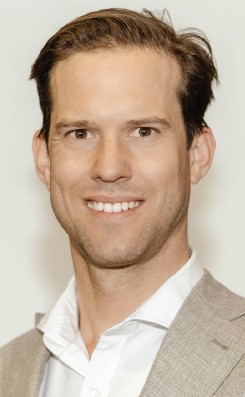

Blog

Meet the Councillor-Double vision of medicine and surgery a bonus
Thursday January 6, 2022
 Q. Why did you join the AMA (WA) Council?
Q. Why did you join the AMA (WA) Council?
TC: I think that the best healthcare systems protect the direct, autonomous relationship betwee the patient and the treating doctor(s).
No one in the health sector cares more about a patient’s health outcome than the medical personnel sitting in front of them.
There is a constant push from medical administrators, governments and health insurers to erode this special relationship. The AMA protects this.
Q. As a dual fellowship-trained ophthalmic surgeon, you have a special interest in refractive, cataract and oculoplastic surgery. What drew you to Ophthalmology as a specialty?
TC: I enjoyed both medicine and surgery, and Ophthalmology has a mix of both. The surgery is intricate and challenging, with constant innovation.
Q. Are there any recent developments in research or treatment in the ophthalmic surgery space that you have been encouraged by?
TC: In the refractive space, the onset of SMILE whereby a small lenticule of the central cornea is removed and the improvements in surface-based treatments such as Trans PRK have been able to resolve some of the rare problems that can occur with LASIK surgery.
Q. In your experience, how challenging is the ophthalmology training pathway here in WA from an accessibility perspective?
TC: Like all specialty programs at the moment, it is very competitive.
Q. What advice would you give an RMO looking to enter the vocational training program for Ophthalmology?
TC: The earlier you decide you want to do a specific training program, the better. I would suggest, however, that you don’t pigeon-hole yourself by just doing ophthalmic rotations and ophthalmic research. Firstly, you will be a better ophthalmologist if you have a broader understanding of medicine and secondly, you may find that there are other areas of medicine which you enjoy.
Q. You work in both the public and private health sectors; are there lessons one system could learn from the other?
TC: In any large organisation, such as the public hospital system, there is waste and inefficiency. With simple and cheap incentive structures, this could be reduced. The public sector is great at training doctors and nurses and the private sector should take on more of this role, given they benefit from it.
Q. Any interests or hobbies?
TC: I’m a keen surfer and try to get out as often as I can. I have a hit of tennis once a week as well.
Q. Your favourite author and why…
TC: Hemingway. With simple, true sentences he manages to draw me into exotic and exciting stories.
Q. Your most treasured collectible…
TC: My piano.
Q. Your parents always told you…
TC: Never say anything about anyone that you would be embarrassed if they heard you say it.

